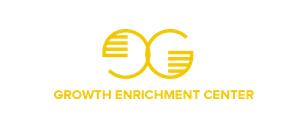
Have you ever considered that around 80% of our daily thoughts tend to be negative? It's intriguing to think about how our minds gravitate towards pessimism, often paving the way for negative self-fulfilling prophecies to manifest. But why does this happen? Understanding the intricate web of factors influencing these patterns can shed light on how we can break free from this cycle and cultivate a more positive outlook on life. Let's explore the underlying reasons behind why negative self-fulfilling prophecies take root and how we can navigate our way towards a more empowering narrative.
Limited Beliefs and Expectations
If you find yourself trapped in a cycle of negative self-fulfilling prophecies, it may often stem from your limited beliefs and expectations. When your mind is clouded by doubts and insecurities, it can be challenging to see the possibilities and opportunities that lie ahead. You might've convinced yourself that certain goals are unattainable or that you aren't deserving of success.
It's essential to recognize that these beliefs aren't set in stone. You have the power to challenge and change them. Start by questioning the validity of these limiting beliefs. Are they based on facts or simply assumptions? By challenging the negative thoughts that hold you back, you can begin to shift your mindset towards a more empowering perspective.
Believe in your potential and cultivate a mindset of abundance and possibility. Surround yourself with positivity and affirmations that reinforce your worth and capabilities. As you break free from the constraints of limited beliefs, you open yourself up to a world of endless opportunities and growth. Embrace the journey of self-discovery and transformation, knowing that you're capable of achieving greatness.
Confirmation Bias and Perception
When examining negative self-fulfilling prophecies, it's important to understand the impact of confirmation bias and perception on shaping your reality. Confirmation bias refers to the tendency to search for, interpret, favor, and recall information that confirms your preexisting beliefs or values. This bias can lead you to overlook evidence that contradicts what you already believe, reinforcing negative self-fulfilling prophecies.
Perception plays a vital role in how you interpret events and interactions. Your perception is influenced by your beliefs, experiences, and emotions, shaping the way you see the world. If you hold onto negative beliefs about yourself or your abilities, you may interpret situations in a way that aligns with those beliefs, even if they aren't entirely accurate.
To counter confirmation bias and shift your perception, practice mindfulness and self-awareness. Challenge your assumptions and seek out different perspectives. By staying open to new information and actively questioning your beliefs, you can break free from the cycle of negative self-fulfilling prophecies and create a more empowering reality.
Self-Sabotaging Behaviors

Shifting your focus to self-sabotaging behaviors allows you to uncover patterns that hinder your growth and well-being. It's important to recognize that these behaviors stem from deeper beliefs and fears that may have been ingrained over time. Procrastination, self-doubt, perfectionism, and negative self-talk are common forms of self-sabotage that can hold you back from reaching your full potential. By becoming aware of these patterns, you can start to challenge and change them.
Self-sabotage often occurs as a way to protect yourself from failure or rejection. However, by engaging in these behaviors, you unknowingly limit your own success and happiness. It's vital to understand that you're deserving of all the good things life has to offer. Instead of being your own worst enemy, aim to become your own greatest supporter.
Breaking free from self-sabotage requires self-reflection, compassion, and a willingness to step outside your comfort zone. It's a journey that may be challenging at times, but the rewards of personal growth and fulfillment make it all worthwhile. Remember, you have the power to rewrite your story and create a future filled with positivity and success.
Influence of Past Experiences
Reflecting on your past experiences can provide valuable insights into how they shape your present beliefs and behaviors. Acknowledging the impact of your history on your current mindset and actions is crucial.
Here are four ways past experiences influence your self-fulfilling prophecies:
- Shaping beliefs: Previous encounters can instill certain beliefs about yourself and the world, influencing how you perceive situations.
- Building resilience: Overcoming challenges in the past can either strengthen your resilience or create barriers to success in the present.
- Creating patterns: Patterns from past experiences can unconsciously repeat themselves, affecting your decisions and outcomes.
- Developing coping mechanisms: Strategies developed in response to past events can impact how you handle similar situations in the present.
Social Conditioning and Norms

Exploring how societal norms and social conditioning influence your perceptions and behaviors, shaping your self-fulfilling prophecies is crucial. From a young age, you were taught certain beliefs and behaviors by society. These norms become ingrained in your mind, impacting how you view yourself and the world around you.
As you grow, these societal expectations influence your decisions, often leading to self-fulfilling prophecies. For example, if you were repeatedly told that you aren't good enough, you might start believing it, eventually fulfilling this prophecy through your actions. Social conditioning can create a cycle where negative beliefs manifest into reality.
However, it's important to recognize that societal norms aren't absolute truths. You have the power to challenge and reshape these beliefs. By becoming aware of how social conditioning influences your thoughts and actions, you can begin to break free from limiting self-fulfilling prophecies. Embrace your individuality and question the norms that no longer serve you. Remember, you have the ability to rewrite the script of your life.
Fear of Failure and Rejection
Feeling afraid of failure and rejection is a common experience that many of us face at some point in our lives. It's natural to feel this way, but it's essential not to let these fears hold you back. Here are some insights to help you navigate through this challenging aspect of negative self-fulfilling prophecies:
- Embrace Vulnerability: Remember that it's okay to feel afraid. Being vulnerable and acknowledging your fears is the first step towards overcoming them.
- Learn from Setbacks: Failure isn't the end but an opportunity to learn and grow. Each setback brings valuable lessons that can pave the way for future success.
- Seek Support: Don't be afraid to reach out to friends, family, or a mentor for encouragement and guidance. You don't have to face your fears alone.
- Challenge Negative Thoughts: When fear creeps in, challenge the negative self-talk. Replace self-doubt with affirmations of your capabilities and worth. You're stronger than you think.
Embracing your fears and working through them can lead to personal growth and resilience. Remember, you're capable of overcoming these obstacles and achieving your goals.
Lack of Self-Worth and Confidence

If you find yourself doubting your worth and abilities, remember that self-worth and confidence are cultivated through self-compassion and self-belief. It's crucial to have moments of insecurity, but it's vital to recognize your value and potential. Embrace the journey of self-discovery and growth, knowing that your worth is inherent and not dependent on external validation.
Start by practicing self-love and acceptance. Treat yourself with kindness, just as you'd a close friend. Challenge negative self-talk by replacing it with affirming statements. Celebrate your strengths and achievements, no matter how small they may seem. Surround yourself with people who uplift and support you, reinforcing your belief in yourself.
Confidence is like a muscle – it strengthens with practice. Step out of your comfort zone, take on new challenges, and learn from both successes and failures. Each experience contributes to your personal development and resilience. Trust in your abilities, embrace your uniqueness, and remember that you're worthy of all the good things life has to offer.
Psychological Priming Effects
As you navigate through the intricate landscape of your mind, be mindful of the subtle yet profound impact that psychological priming effects can have on your thoughts and behaviors. These effects can shape your perceptions and actions in ways you may not even realize. Here are four key points to bear in mind:
- Awareness is Key: Recognize the power of subtle cues and stimuli in influencing your mindset. By being mindful of the messages you expose yourself to, you can start to take control of your thought patterns.
- Positive Priming: Surround yourself with uplifting and affirmative influences. Positive priming can help cultivate a more optimistic outlook, leading to constructive self-fulfilling prophecies.
- Challenge Negative Patterns: Identify and challenge negative priming effects that may be reinforcing self-doubt or limiting beliefs. By actively working to reframe these patterns, you can steer your thoughts in a more positive direction.
- Intentional Exposure: Deliberately choose to expose yourself to stimuli that promote confidence, self-worth, and empowerment. Selecting empowering content can help counteract negative priming effects and support a more resilient mindset.
Seeking Validation From Others

Hey there, seeking validation from others is something many can relate to.
It's natural to want approval and acceptance from those around you.
External Approval Influence
Seeking validation from others can often lead to a cycle of seeking external approval that can impact your self-fulfilling beliefs. It's natural to want recognition and acceptance from those around you, but relying solely on external validation can be a slippery slope.
Here are a few things to ponder:
- Your Worth: Remember that your value isn't determined by others' opinions.
- Authenticity: Stay true to yourself rather than molding into what others want.
- Inner Strength: Build confidence from within to lessen the need for external approval.
- Feedback vs. Approval: Differentiate constructive feedback from seeking constant validation.
Validation Seeking Behavior
Engaging in consistent validation seeking behavior can hinder your ability to cultivate genuine self-worth and confidence. While it's natural to seek validation from others, relying solely on external approval for your sense of self-worth can lead to a cycle of insecurity and self-doubt.
Constantly seeking validation from others puts your self-esteem at the mercy of external opinions, making it difficult to build a strong foundation of self-assurance. Instead of constantly seeking validation from others, try focusing on validating yourself. Recognize your own accomplishments, strengths, and qualities without needing external reassurance.
Role of Cognitive Dissonance
Hey there,
Let's talk about the role of cognitive dissonance in understanding negative self-fulfilling prophecies.
It's all about how our own biases can sway our beliefs, leading us to justify our actions even when they mightn't align with our true values.
Recognizing this discomfort and learning how to manage it can be a powerful tool in breaking free from harmful patterns.
Cognitive Bias Influence
Understanding the complexities of negative self-fulfilling prophecies involves grasping how cognitive biases, particularly cognitive dissonance, influence our perceptions and behaviors. When cognitive dissonance arises, it can lead you to unconsciously seek out information that confirms your existing beliefs. This confirmation bias can reinforce negative self-fulfilling prophecies.
Additionally, the discomfort of cognitive dissonance may push you to justify your actions, even if they align with the negative prophecy. To combat these biases, it's crucial to remain open-minded and consider alternative viewpoints.
Self-Justification Mechanism
When faced with cognitive dissonance, your mind may instinctively engage in self-justification mechanisms to alleviate the discomfort of conflicting beliefs. It's natural to seek harmony between what you believe and how you act.
This self-justification process involves rationalizing your choices or beliefs to reduce the tension arising from contradictory thoughts. By justifying your actions, you aim to maintain a sense of consistency in your beliefs and behaviors. However, this mechanism can sometimes lead you to overlook evidence that challenges your existing beliefs, reinforcing negative self-fulfilling prophecies.
Being aware of this tendency can help you critically evaluate your justifications and open yourself to new perspectives. Embrace the discomfort of cognitive dissonance as an opportunity for growth and learning.
Psychological Discomfort Management
Engaging with cognitive dissonance can be a challenging yet transformative experience as you navigate the discomfort of conflicting beliefs. Here are four ways to manage psychological discomfort effectively:
- Acknowledge Your Feelings: Recognize and accept the discomfort you're experiencing without judgment.
- Challenge Your Beliefs: Question the validity of conflicting beliefs and explore alternative perspectives.
- Seek Support: Reach out to trusted friends, family, or a therapist to discuss your thoughts and emotions.
- Practice Self-Compassion: Be kind to yourself during this process, understanding that it's normal to feel unsettled when confronting cognitive dissonance.
Frequently Asked Questions
How Can One Break the Cycle of Negative Self-Fulfilling Prophecies?
To break the cycle of negative self-fulfilling prophecies, start by challenging your thoughts. Recognize when negativity creeps in, replace it with positive affirmations. Take actions aligned with your goals, and believe in your ability to create a positive reality.
Are There Specific Strategies to Rewire the Brain for Positive Expectations?
You can rewire your brain for positivity by flooding it with affirmations, visualizations, and gratitude. Embrace the power of positive thinking, challenge negative thoughts, and surround yourself with supportive influences. Consistent practice can transform your mindset.
What Role Does Personal Resilience Play in Overcoming Self-Sabotaging Behaviors?
Personal resilience plays a vital role in overcoming self-sabotaging behaviors. By cultivating a positive mindset, facing challenges head-on, and seeking support when needed, you can navigate setbacks and emerge stronger, more confident, and empowered.
Can Therapy or Counseling Help in Addressing Deep-Rooted Past Experiences?
Therapy can be a beacon of hope, illuminating the shadows of deep-rooted experiences. With expert guidance, you'll navigate the maze of your past, unraveling knots to find healing and understanding. Trust the process.
Is There a Way to Challenge Societal Norms and Conditioning for Self-Improvement?
You can challenge societal norms and conditioning for self-improvement by embracing your uniqueness, questioning assumptions, and seeking personal growth. Empower yourself to redefine success on your terms and rewrite the script of your life.
Conclusion
You hold the power to break free from negative self-fulfilling prophecies. Challenge limited beliefs, combat confirmation bias, and embrace self-worth.
Let go of self-sabotage and societal norms. Your past doesn't define your future. Choose to believe in yourself and create a new narrative.
Trust in your ability to shape your own destiny. Embrace the journey of self-discovery and empowerment. You're capable of rewriting your story with courage and resilience.

